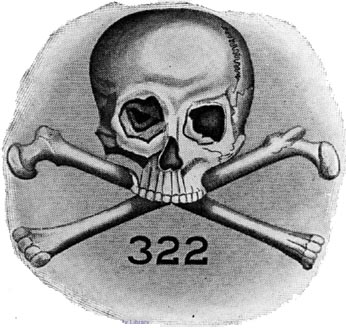The Freemasons

The Freemasons are perhaps the most well-known secret society in the world. Founded in the late 16th to early 17th century, they have a rich history intertwined with many significant historical events. The organization is known for its elaborate rituals and symbols, including the square and compass. Membership is often seen as a mark of prestige, with many influential figures, including presidents and business leaders, being part of this society. The Freemasons emphasize moral and ethical development, charity, and community service. Despite their secrecy, they have been the subject of numerous conspiracy theories, often being accused of having undue influence over political and economic systems.
The Illuminati

The Illuminati, originally founded in 1776 in Bavaria, aimed to promote Enlightenment ideals and combat religious and political oppression. The group was disbanded in the late 1780s, but its legacy has persisted through various conspiracy theories that claim it continues to operate in secrecy. The term “Illuminati” has become synonymous with shadowy elites controlling world events. Many believe that members include influential figures in politics, entertainment, and finance. The fascination with the Illuminati has led to numerous books, documentaries, and films exploring its alleged influence on global affairs.
Skull and Bones

Skull and Bones is a secret society at Yale University, founded in 1832. It is known for its exclusive membership, which includes many prominent political leaders and business tycoons, including several U.S. presidents. The society’s rituals and traditions are shrouded in secrecy, leading to speculation about its influence on American politics. Members are often referred to as “Bonesmen,” and the society’s emblem is a skull and crossbones. The society’s close-knit network is believed to provide members with significant advantages in their careers, fostering connections that can lead to powerful positions in government and industry.
The Rosicrucians

The Rosicrucians are a mystical and philosophical secret society that emerged in the early 17th century. They claim to possess esoteric knowledge and wisdom, focusing on spiritual enlightenment and the betterment of humanity. The society is often associated with alchemy, mysticism, and the pursuit of hidden truths. Rosicrucianism has influenced various movements, including Freemasonry and Theosophy. Their teachings emphasize the importance of personal transformation and understanding the universe’s mysteries. The society continues to exist today, with various organizations claiming the Rosicrucian legacy.
The Bilderberg Group

Founded in 1954, the Bilderberg Group is an annual conference of influential political and business leaders from Europe and North America. The group’s meetings are held in secret, leading to speculation about its role in shaping global policies. Attendees include heads of state, CEOs, and academics, making it one of the most powerful gatherings of elites. Critics argue that the Bilderberg Group operates outside democratic processes, influencing decisions that affect millions. Despite its secrecy, the group maintains that its purpose is to foster dialogue and cooperation among leaders.
The Order of the Eastern Star

The Order of the Eastern Star is a Masonic-affiliated organization open to both men and women. Founded in the mid-19th century, it incorporates teachings from the Bible and emphasizes moral values and charitable work. The organization is known for its elaborate rituals and symbols, similar to those of the Freemasons. Members often engage in community service and support various charitable causes. The Order has a significant presence in the United States, with thousands of chapters across the country, promoting fellowship and support among its members.
The Knights Templar

The Knights Templar were a medieval Christian military order founded in the 12th century. They gained immense wealth and power during the Crusades, becoming key players in European politics and finance. The Templars were known for their distinctive white mantles adorned with a red cross. Their sudden dissolution in the early 14th century led to numerous conspiracy theories about their hidden treasures and continued existence. Today, various organizations claim to be the modern descendants of the Knights Templar, often focusing on charitable activities and historical preservation.
The Ordo Templi Orientis (OTO)

The Ordo Templi Orientis is a mystical and occult organization founded in the early 20th century. It incorporates elements of Freemasonry, Thelema, and various esoteric traditions. The OTO is known for its rituals and teachings that explore the nature of the divine and human potential. Prominent figures, including Aleister Crowley, have been associated with the organization, contributing to its controversial reputation. The OTO continues to operate today, with members engaging in spiritual practices and promoting personal empowerment.
The Hermetic Order of the Golden Dawn

Founded in the late 19th century, the Hermetic Order of the Golden Dawn is a magical society that focuses on the study of the occult, metaphysics, and paranormal activities. The organization attracted many notable figures, including writers and artists, and is credited with influencing modern Western esotericism. The Golden Dawn’s teachings encompass various mystical traditions, including Kabbalah, alchemy, and astrology. The society’s elaborate rituals and emphasis on personal development have inspired numerous contemporary magical and spiritual movements.
The Trilateral Commission

Established in 1973, the Trilateral Commission is a non-governmental organization that aims to foster cooperation among North America, Europe, and Asia-Pacific. Comprising influential leaders from various sectors, the commission discusses global issues and promotes dialogue among its members. Critics argue that the commission operates in secrecy and wields significant influence over international policies. Supporters contend that it plays a vital role in addressing complex global challenges. The Trilateral Commission continues to be a focal point for discussions on international relations and economic cooperation.


